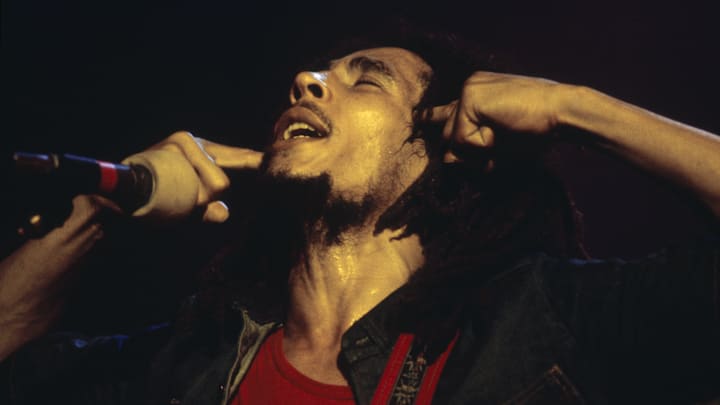Bob Marley was many things to different people, but he always hoped to bring people together with his music. He did not want anyone to be oppressed, of course, but no matter what ethnicity a person was, if one came with an open mind he was happy to have the person join in on the conversation.
Marley also grew up in a poor community where most people never had any hopes of escaping. The singer's observation of these conditions was apt and perfect and he sang so other people might feel the hope of getting out from under the thumb of those who kept them down. Bob Marley was as much a philosopher as a songwriter.
The five songs that follow do not do service to the depth of Marley's excellence when singing about the human condition. For a larger sampling, and if you are unfamiliar with Marley, you should go down your own path of finding his music. You will not be sorry.
Protest songs might never have been better-written than the ones Bob Marley wrote
"Them Belly Full (But We Hungry)" (1974)
The song is full of iconic and invigorating lines but perhaps none more than, "A hungry mob is an angry mob." In fact, there might not be any line ever better written about just how being poor and relatively helpless in one's financial possibilities can make one desperate for change. Plus, the tune involves the government intentionally keeping people impoverished so that government officials can get more than their share.
The track is from Marley's first real solo album, Natty Dread. Up until the point he made this album which was released in 1974, he had made records with Peter Tosh and Bunny Wailer. This album set Marley on a new path from which he would always make his own way. He was incredibly intelligent in knowing how to handle the business side of music so much so many of the tracks on Natty Dread have a co-writing credit from a family member or friend so that his publishing company, Cayman Music, could not claim a stake. Marley wrote all the songs, however.
